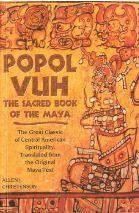Because of the Warring States period of ancient China, there were philosophies and schools of thought that flourished in this time. With war, comes a solution to how the government should be run. Two of these philosophies would later be known as Confucianism and Daoism (Taoism). Discovered at different times by different men, it is no wonder that these two philosophies hold little to no similarities with each other. In the book Awakening, by Patrick Bresnan, he goes over in-depth the knowledge of both. He states, “... the Daoist new person was a far cry from the “Superior Man” of Confucius” (Bresnan 342). Here, we see that the “Superior” humans in both philosophies have more disagreement than similarities.
 |
| A Portrait of Confucius from an unknown source. |
In chapter 13, number four of the Questions of Discussion, located on page 332, asks what a junzi, Cunfucias’ “Superior Man,” is really like and if this ideal has any application in the modern world. His Superior Man would be a man of knowledge, one knowledgeable in the legacy of the past, well-rounded, conversant, and skilled in all areas of life. They would also be a man of ren, which Bresnan states “ is sincere feeling and caring for others; ren is gladly putting others first; ren is compassion; ren is good-natured; ren is human-heartedness” (Bresnan 315). This is what makes up the Superior Man of Confucianism. And this kind of work ethic can be applied to the modern world. Any Superior Man of this time would be treated in high regard and respect. However, Bresnan states, “junzi in the time of Confucius could be applied only to men” (Bresnan 314). The character of the Superior Man can be applied, but the fact that Confucius believed that only men can hold this title shows that today, this gender inequality wouldn't be accepted. However, as we see coming up, Doasim shows that anybody can hold a Superior Person title.
A great documentary to watch about the Superior Person in Daoism is this one, Youtube's The Art of Effortless Living.
Works Cited:
Bresnan, Patrick. Awakening: an Introduction to the History of Eastern Thought. Routledge, Taylor & Francis Group, 2018.
OneWorldWithin. “The Art of Effortless Living (Taoist Documentary).” YouTube, YouTube, 11 Nov. 2019, www.youtube.com/watch?v=IuDY8m72tgk.
V, Jayaram. The Qualities of a Superior Man by Confucius.www.hinduwebsite.com/general/quotes/confu-superior.asp.



No comments:
Post a Comment